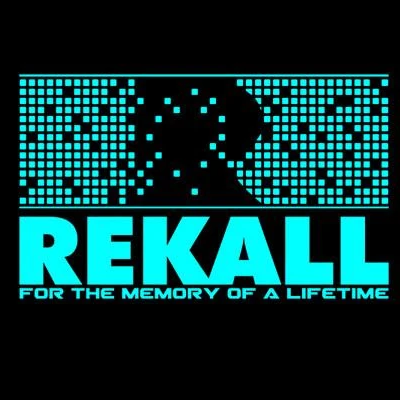Firefox is the spiritual successor of Netscape Navigator, as the Mozilla community was created by Netscape in 1998, before its acquisition by AOL. Firefox was created in 2002 under the codename “Phoenix” by members of the Mozilla community who desired a standalone browser rather than the Mozilla Application Suite bundle.
The Firefox project has undergone several name changes. The nascent browser was originally named Phoenix, after the mythical bird that rose triumphantly from the ashes of its dead predecessor (in this case, from the “ashes” of Netscape Navigator, after it was sidelined by Microsoft Internet Explorer in the “First Browser War”).
https://en.wikipedia.org/wiki/Firefox
On January 23, 1998, Netscape announced that its Netscape Communicator browser software would be free, and that its source code would also be free. One day later, Jamie Zawinski of Netscape registered mozilla.org. The project took its name, “Mozilla”, from the original code name of the Netscape Navigator browser—a portmanteau of “Mosaic and Godzilla”, and used to coordinate the development of the Mozilla Application Suite, the free software version of Netscape’s internet software, Netscape Communicator. Zawinski said he arrived at the name “Mozilla” at a Netscape staff meeting. A small group of Netscape employees were tasked with coordinating the new community.
https://en.wikipedia.org/wiki/Mozilla
Everything that was useful in Netscape became the basis for Firefox.
See also the documentary.
I could’ve sworn that the browser was also called just Mozilla at one point, or was that just always the suite it was part of?
My memory is hazy, but I’m pretty sure Mozilla was a package and most people just didn’t install the rest of the package. Everyone called the browser Mozilla because they didn’t use the other parts. I could definitely be wrong, though.
Mozilla (Suite) was similar to Netscape Commumicator and included browser, mail, webpage editor and maybe other functions as well. I don’t recall you could install the components separately. Later they decided to release a standalone browser (Phoenix/Firebird/Firefox) and then mail client (Thunderbird). IIRC they had standalone calendar (Sunbird) and webpage editor as well. Eventually they discontinued Mozilla and the closet thing would be the community-maintained Seamonkey.
could’ve sworn that the browser was also called just Mozilla at one point
If I remember correctly, at one point Mozilla referred to itself as “the godzilla of Mosaic” or something like that.
Mosaic being the first widely available web browser.
I believe the joke was something like it was spelled “Netscape” but pronounced “Mozilla”. Web searches (at time of writing) for “pronounced Mozilla” seem to confirm this. I also seem to remember that its user-agent string identifier was “Mozilla” from the earliest version and never contained “Netscape”, which goes some way to explaining why I initially forgot the real history and assumed a rebranding to Firefox.
Firefox is the spiritual successor of Netscape Navigator
False. SEAMONKEY is the actual successor of Mozilla, the software which is the actual successor of Netscape Navigator.
Everything that was useful in Netscape became the basis for Firefox.
False. Thunderbird is a thing and an important part of Seamonkey.
See also the documentary.
Ready on the (x)-to-doubt button.
I loved Netscape as a kid. I would stare at the little Netscape icon with the shooting stars while waiting for pages to load… Funny how little things like that seemed so magical back then ✨🖥️💖
They were magical.
One can occasionally see things which are just as magical in our time.
It’s just that - the Web is like Coruscant, what was magical is the lower levels, abandoned, decaying, full of predators and infections and barely supported ; people live on the middle levels, which are full of usual life with all kinds of stuff, and upper levels, which are heaven, but for few.
These things still happen. Just mostly not in the Web.
We have forgotten, but most of the magic is created by separate human beings, and it was a very rare situation where corporations would help it, in the 90s.
But then talking like that is a pretty tired cyberpunk trope. We’ll see something good. Humanity finds new pits and stinky places, as the time goes, but these are not the only kind of things it finds.
The third of Arthur C Clarke’s three laws:
“Any sufficiently advanced technology is indistinguishable from magic.”
Now that splash screen, with its pixelated gradient of the 256 color palette brings back some nostalgic memories.
It’s funny because we can see pixelated stuff today mostly in shitty jpeg artifacts, but those follow the jpeg algorithm for how to best conserve file size within their compression scheme, so they look different. This splash screen seemingly has every pixel meticulously chosen so that it’s in the right place, and working with only the limits of the color space.
Dithering, it’s a lost art. It always reminds me of Monkey Island.
Best game. You post like a dairy farmer!
Edit: got the lead up wrong.
In the Windows 3.1 days I made my own icons. Yes, a single pixel out of place or wrongly colored would throw it all off.
Oh shit… core memory unlocked. I forgot I used to do this. I forgot there was a time you would do this otherwise everything just had the same icon.
Even better, that splash screen was only 16 colors.
Saved a lot of memory. Even though we had upgraded to 24mb in our Mac Performa at the time.
deleted by creator
They became a poster child for why you should never “start over from scratch” even if your current codebase is awful. Because when you do that your competitors keep going, then they have years on your now stale product. Netscape lost all on their own…
Also: selling a browser? Man, the 90’s where wild.
That’s rather simplifying history and not the main reason Netscape failed.
Netscape lost because Microsoft used it’s dominant monopoly position to bundle Internet Explorer with windows. By 1999 the writing was already on the wall - IE had already overtaken Netscape market share and was growing rapidly.
The Mozilla project and code base change was a gamble to try and fix the problems. When Microsoft released IE6 2001 they didn’t bother releasing another major version for 6 years as they were so dominant.
So while the code base change was arguably mishandled, at worst it accelerated the decline. Instead the whole story is a poster child for how monopoloes can be used to destroy competition. The anti trust actions in the US and EU came too late for Netscape.
Ironically Microsoft was the receiving end of the same treatment when Google started pushing Chrome via it’s own monopoly in search. They made a better product than the incumbent but they pushed it hard via their website that everyone uses.
Chrome was also shoved down user’s throats by being bundled with all kinds of software. When you downloaded programs from places like SourceForge, Softonic and similar, your download (when you installed it) had “Install Chrome Browser” already checked. If you forgot to uncheck the box, you ended up having to uninstall Chrome. It was the most annoying thing ever.
Huh, weirdly I don’t remember that. I remember having to uncheck a whole bunch of check boxes for browser extensions, toolbars, WinZip pro, etc. But I didn’t remember that chrome was one of those. I’m sure you’re right though.
I don’t think chrome was on sourceforge’s list-of-malware they stuffed everything in, but it was bundled with a lot of legitimate software.
Google bought a lot of their marketshare, and did so with any method that resulted in an install, including bundled installer crap.
I always assumed it said chrome but was just a virus so I was always super paranoid when installing things
The monopoly position helped for sure but I think it’s glossed over that at one point Internet Explorer was simply the best web browser on the market. It’s was only after years of mismanagement by Microsoft that it gained the reputation it has now. But there was a point in the late 90s early 2000s where Netscape was a super buggy mess and Internet Explorer was the best browser on the market.
That was true for Chrome as well, when that first hit the market it was a light and amazing browser. There were a lot of technology savvy early adopters for Chrome.
Yeah, Netscape 4.0 was simply slower than IE 4.0. Back then, when a browser was a program that would actually push the limits of the hardware, that was a big deal.
But there was a point in the late 90s early 2000s where Netscape was a super buggy mess and Internet Explorer was the best browser on the market.
Lemme guess, one was super buggy and the other the best browser on websites using non-standard functionality of the latter.
non-standard functionality of the latter.
My guy. In the 90’s ALL browsers were non-standard. Even at the protocol level.
http/0.9 - 1991
http/1.0 - 1996
http/1.1 - 1997html/1.0 - 1991
html/2.0 - 1995 revised in 1996, and 97.
html/3.0 - 1997
html/4.0 - 1997 revised in 1998, 99, and 2000.Then comes all the add-ons like flash, shockwave, etc… Nothing was standard at this time-frame. We threw everything possible into browsers. Toolbars for literally everything (I remember even having winamp controls in my browser).
https://developer.mozilla.org/en-US/docs/Web/HTTP/Evolution_of_HTTP
Between 1991-1995, these were introduced with a try-and-see approach. A server and a browser would add a feature and see if it got traction.
Literally sites and browsers would just implement stuff just to implement and see if it became used.
A lot of recent times (2010’s mostly) has been back peddling the mad rush of just shoving EVERYTHING into browsers. Now I actually fear we’re going to far though… With google removing useful backend stuff for plugins and such. I just hope Firefox never follows suit.
Hokay.
About try and see - I actually liked the way it was with HTML 4.0 , Macromedia Flash, no JS and no CSS.
ADD:
I remember a Shaman King fansite where I would watch all its episodes in Flash in atrocious quality.
Would like to see something like Gemini, but with tables and other formatting being more customizable in the page, like it was back then. And a choice between a link that is just a link and a link that should be displayed inline if possible.
I was being a bit facetious, thanks for the corrections and insight. Cheers!
When Microsoft released IE6 2001 they didn’t bother releasing another major version for 6 years as they were so dominant.
They were also, eventually, much too late to matter, convicted of being a monopoly as a result of the IE money grab.
Opera was a paid browser till it started going bad.
Never paid for it though, and started using it when it was free, so can’t complain.
till
This is a farming implement or a cash drawer.
Did you mean " 'til " ?
Probably. There’s also something similar in Scandinavian languages, I’ve been trying to learn a lot of languages and abandoning them when I was a teen.
Didn’t the refactored netscape eventually evolve into Firefox though? Not disputing the poster child status or the fact that it’s a terrible business decision, but the project did not really go stale I think?
I was there, 3000 years ago
It became Firefox
Yeah I thought everyone knew this. Netscape became Mozilla Browser, which became Firefox.
TIL!
That’s a bit reductive
I have allways loved the Netscape logo
allways loved
In all ways? Ewww.
It was always my understanding that much of the core of Communicator eventually became early Firefox, but I’ve never really fact-checked that, just kind of read it here and there anecdotally on forums.
And Thunderbird for the email portion. Yes, web and email were in the same application.
4-in-1 🙃
And with GMail and Chrome, it is still.
Earth is riddled with empires who thought they would last forever.
Netscape got a serious case of Windows’ forceful and illegal monopolisation of Internet Explorer.
Holy shit someone still operates this?!
Isn’t Netscape just Mozilla at this point? At least tech wise
Yes, but no.
The source code for Netscape Navigator was open-sourced and has become Mozilla Firefox. The company Netscape is now a mostly defunct brand while Mozilla is a non-profit, public benefit company in service to the Mozilla Foundation, and the Mozilla community.
And here I was about to say that it had simply become Mozilla Firefox.
I guess I pruned my knowledge (read: forgot) at some point because I know I went from using Netscape to the Mozilla Application Suite as my browser of choice, and then ultimately onto Firefox when that died. (Firefox and Thunderbird were well established and Seamonkey was still in its infancy, otherwise I probably would have switched to that instead.)
Looking at the facts, the AOL buy-out is what must have got me to switch to MAS.
I been using it for a while, it became Mozilla Firebird
bird?
For a short time.
Even short times can have an explosive finish
Aah the joys of 256 color video cards.
If you could afford one! CGA/EGA were the best we had for a while. VGA/256 color was the stuff dreams were made of (and boy were we excited to finally get a computer that had it!!!)
CGA? EGA? Well look at you, Mr. Fancy Rich Guy Computer user.
I lived the MDA life until waaaaaaaaaaaaay into the SVGA era lol.
Damn, lol! We always laughed about “Hercules”, i now see even that was superior to MDA! TIL we had it “good” with CGA as kids 😅
Hercules was MDA if MDA wasn’t garbage (thanks IBM!).
But yeah went from a XT with MDA to a Pentium system.
Real caveman-discovers-fire moment.















